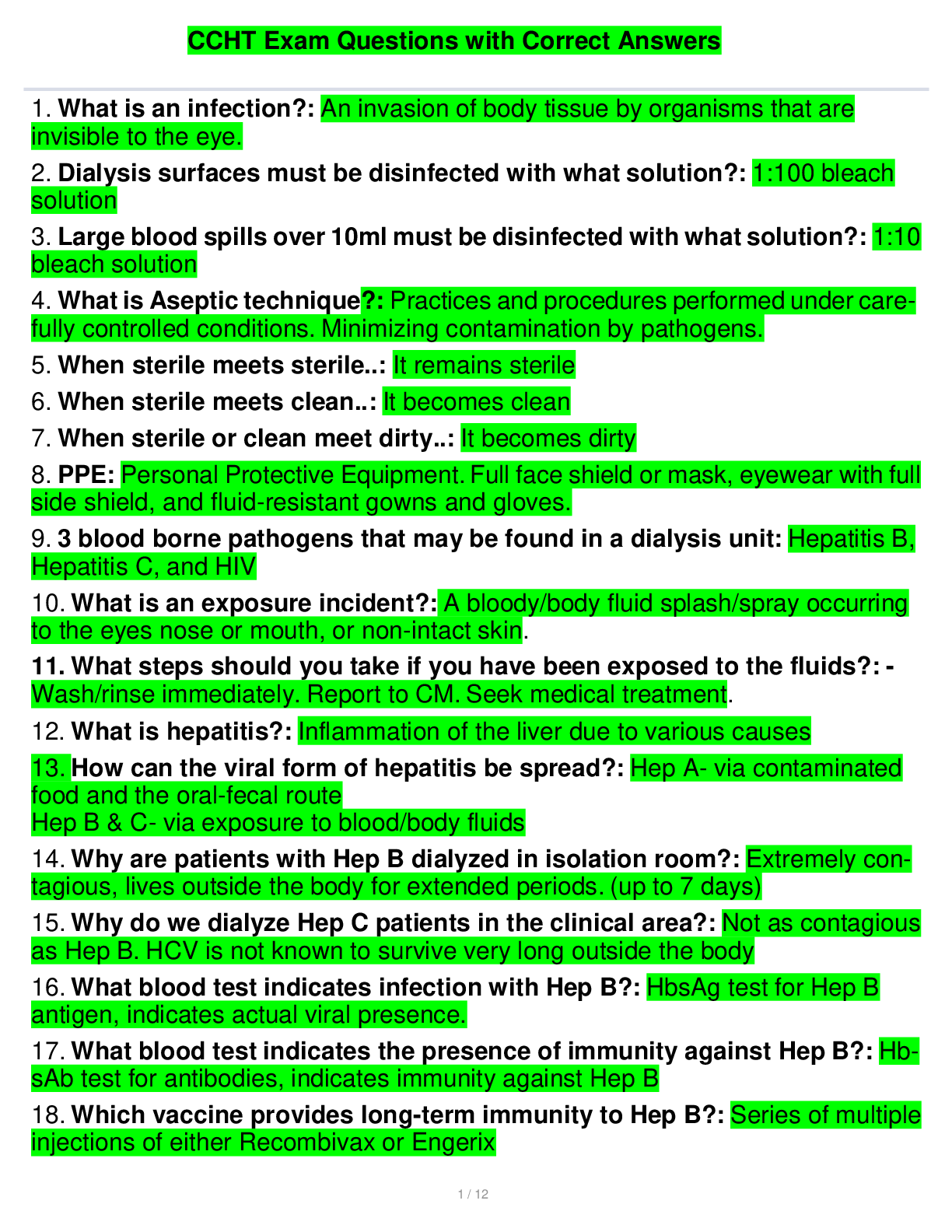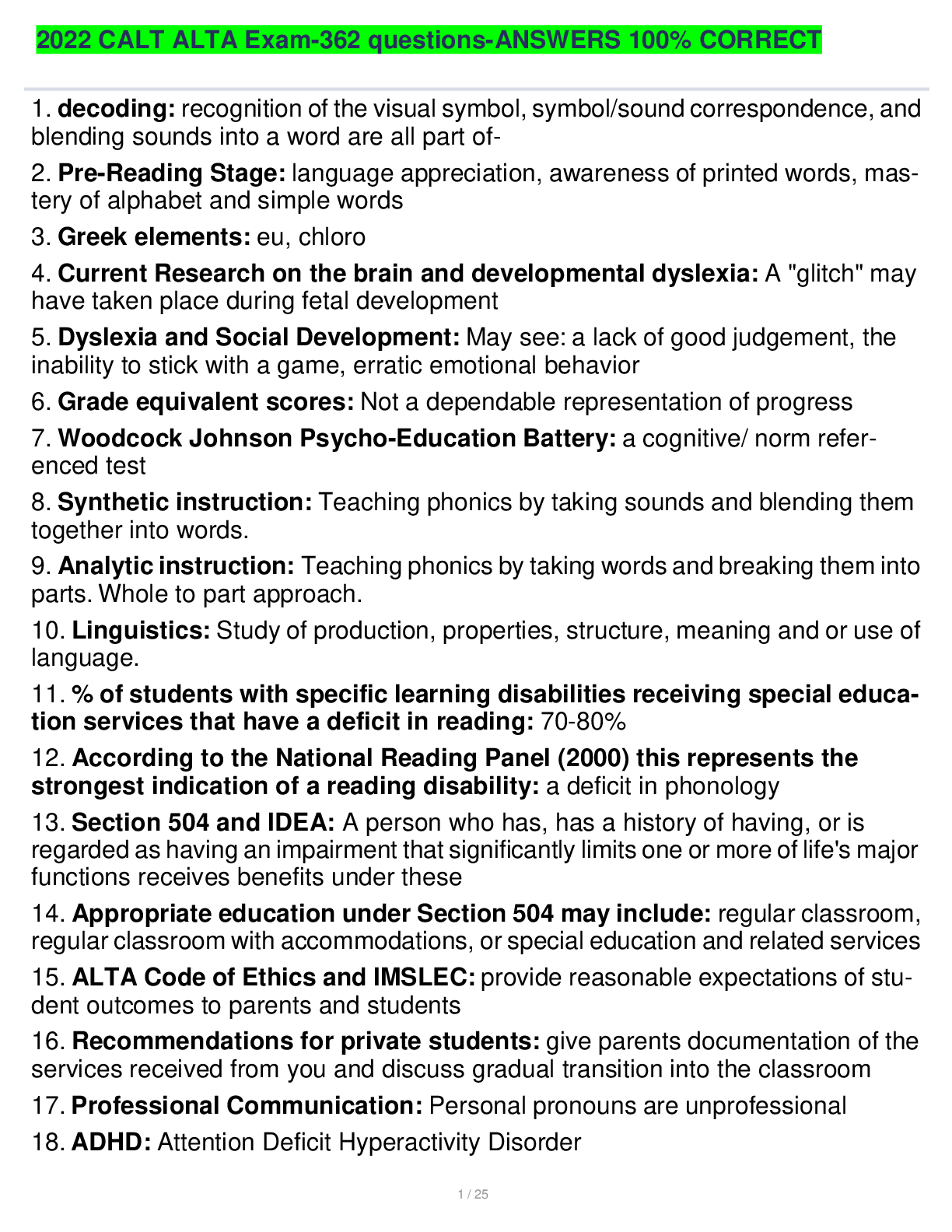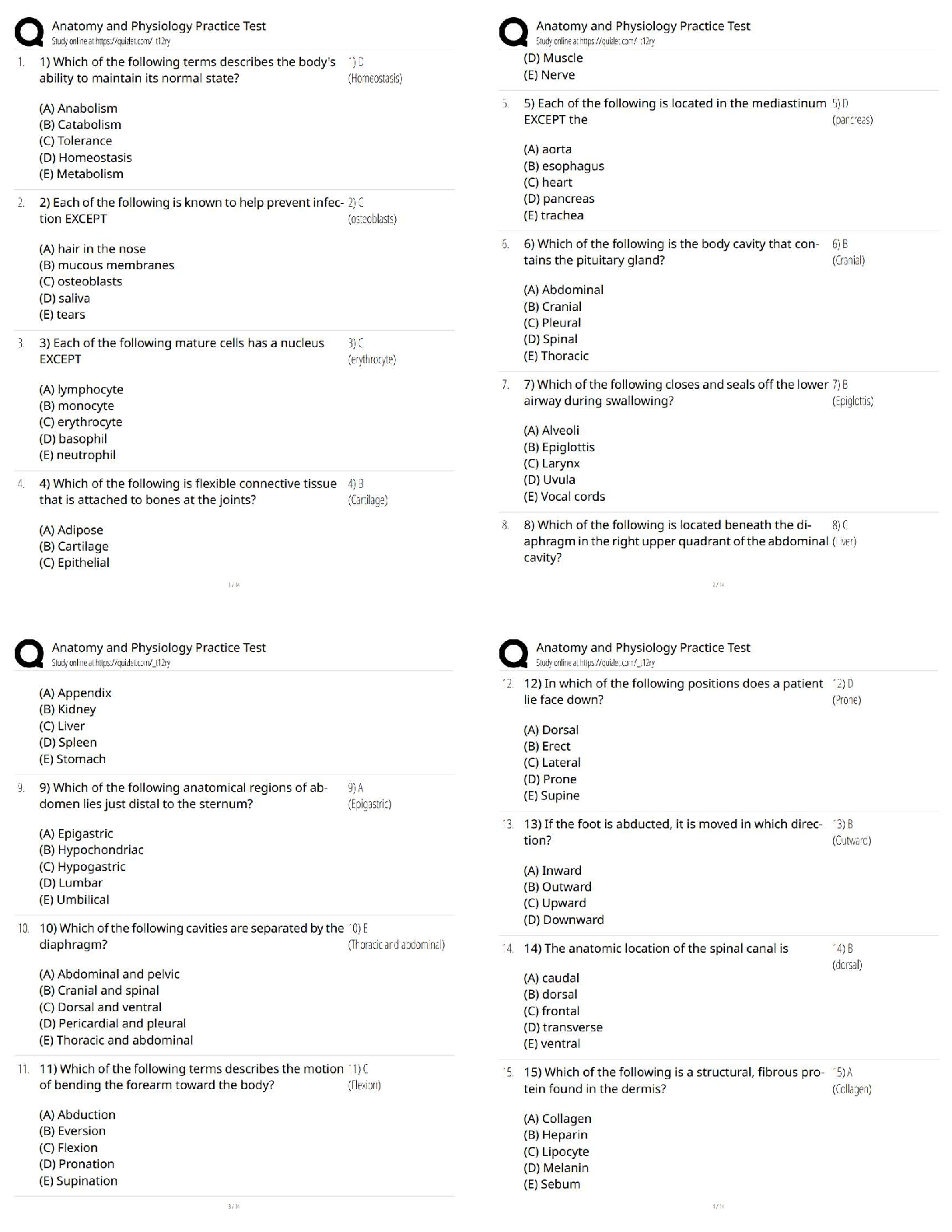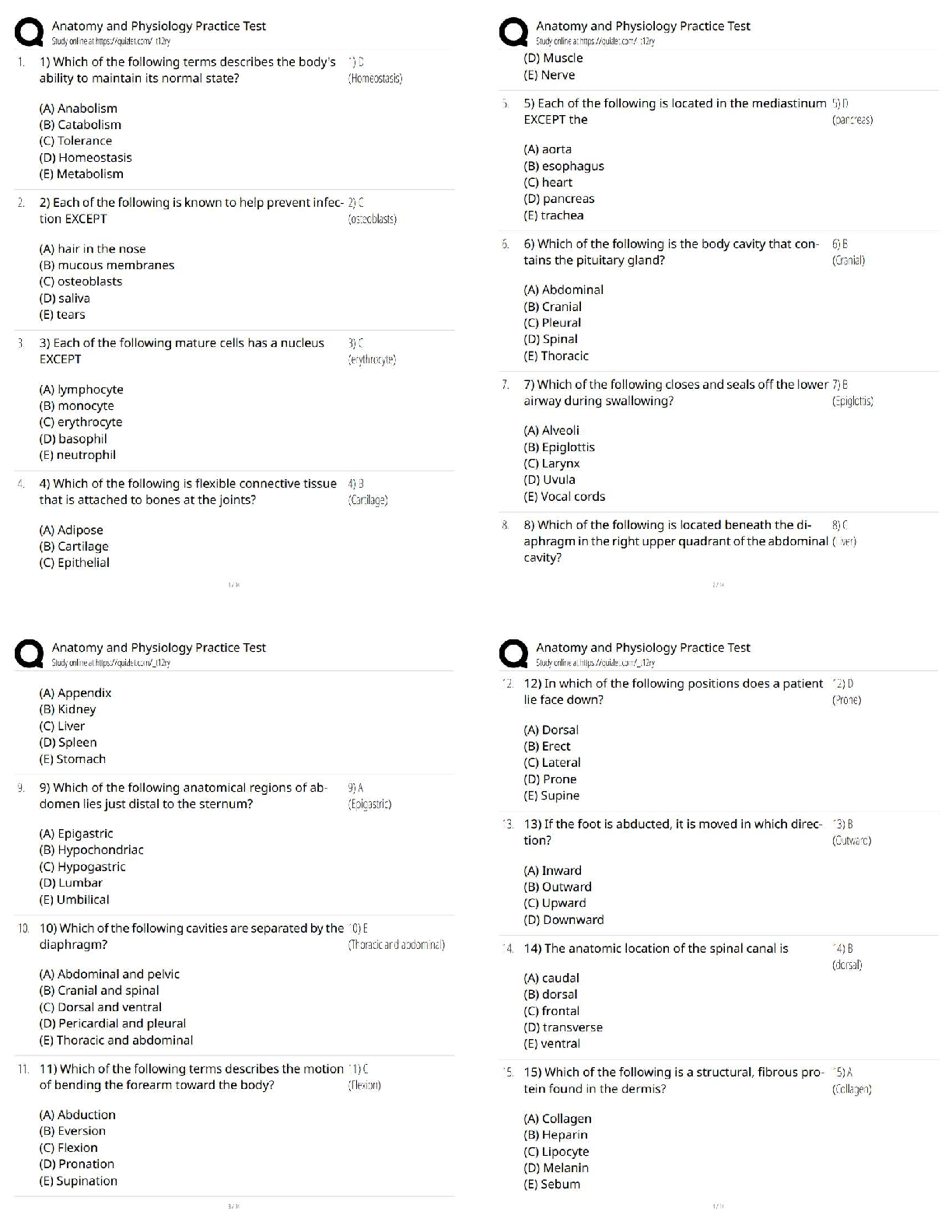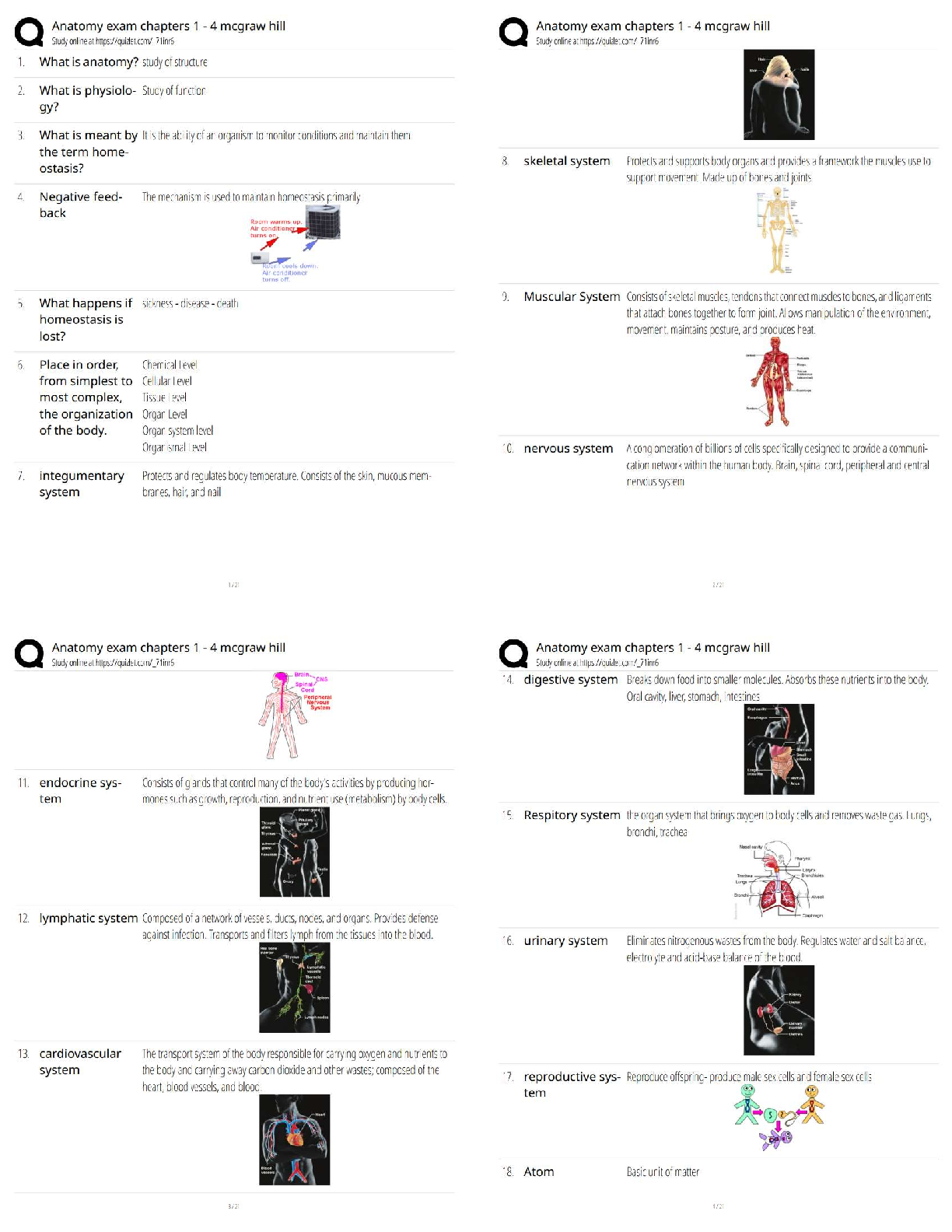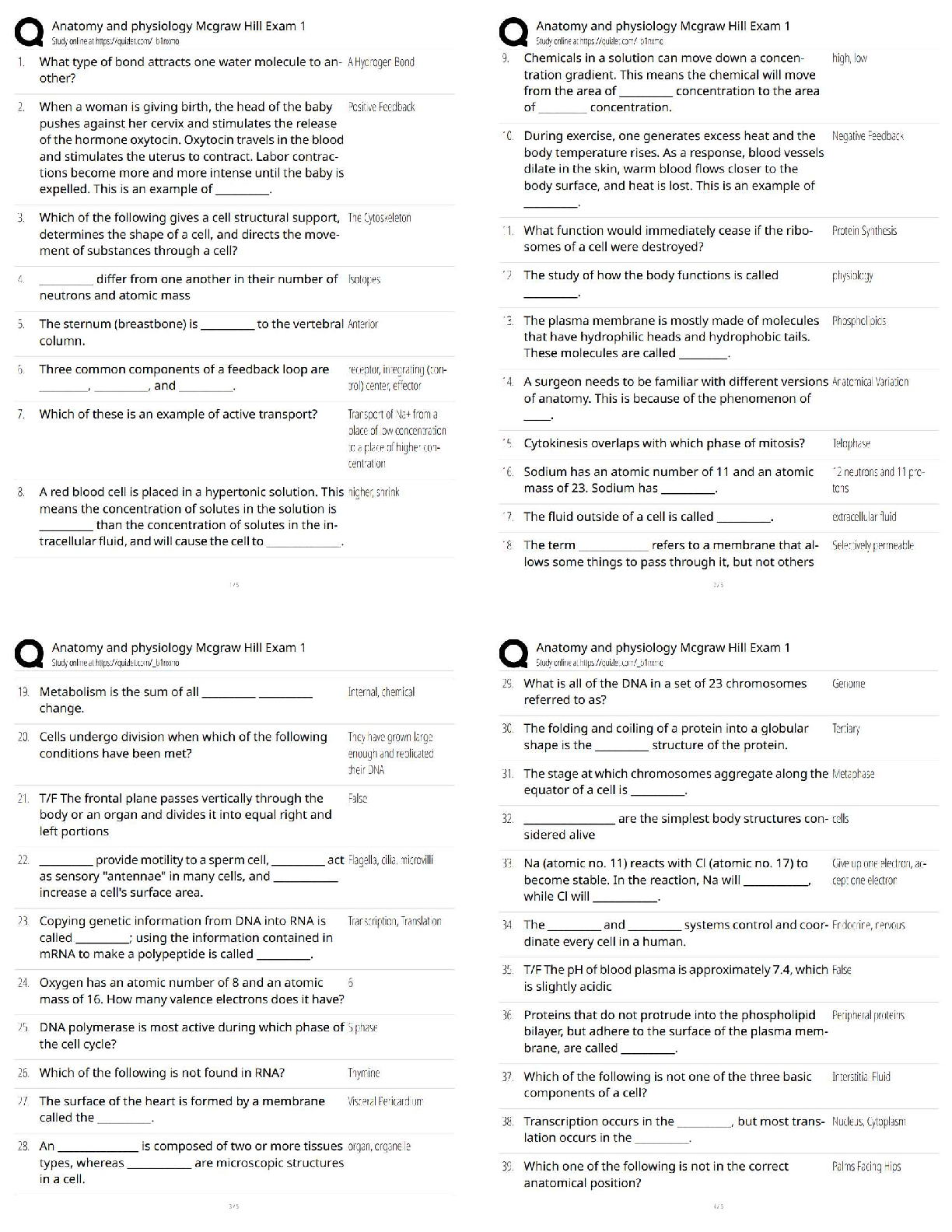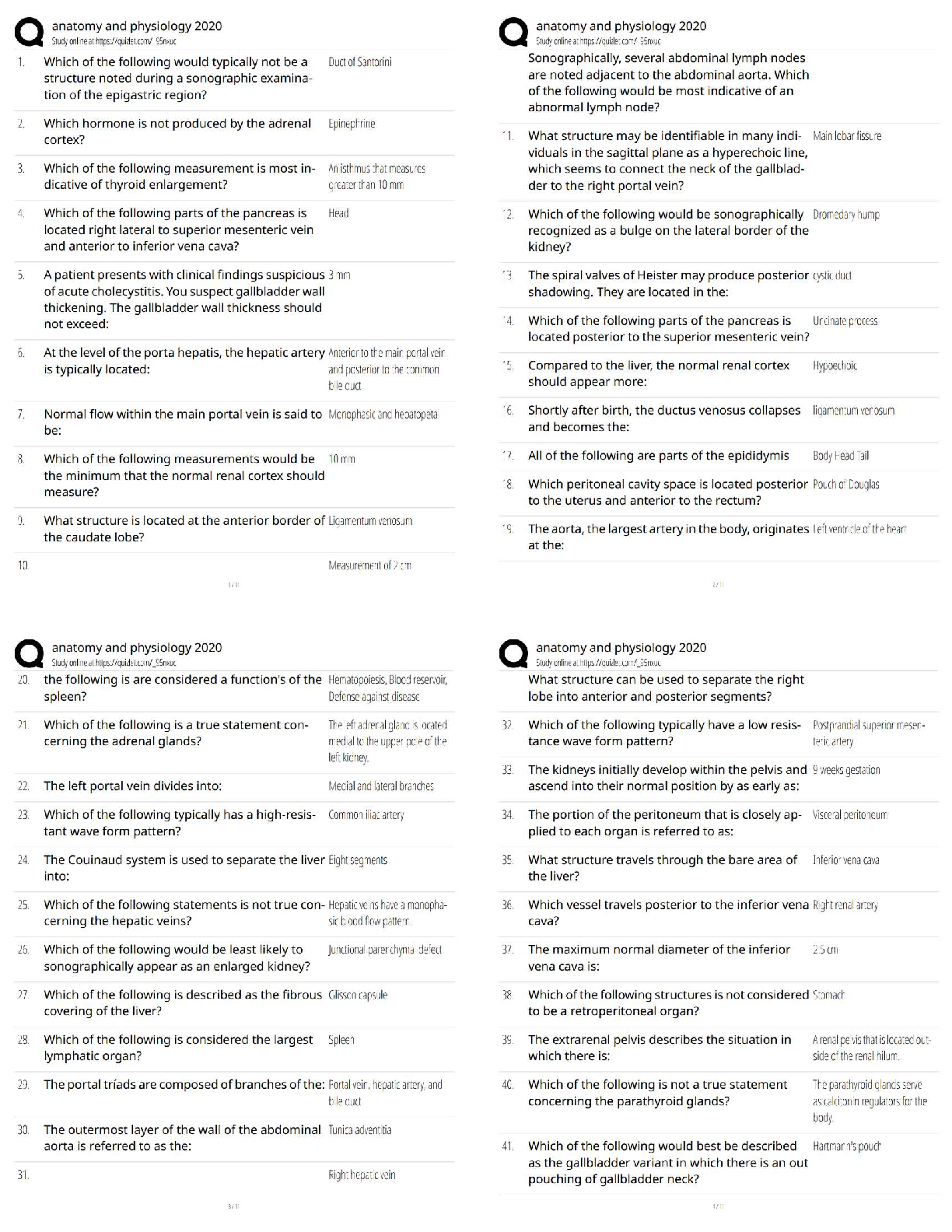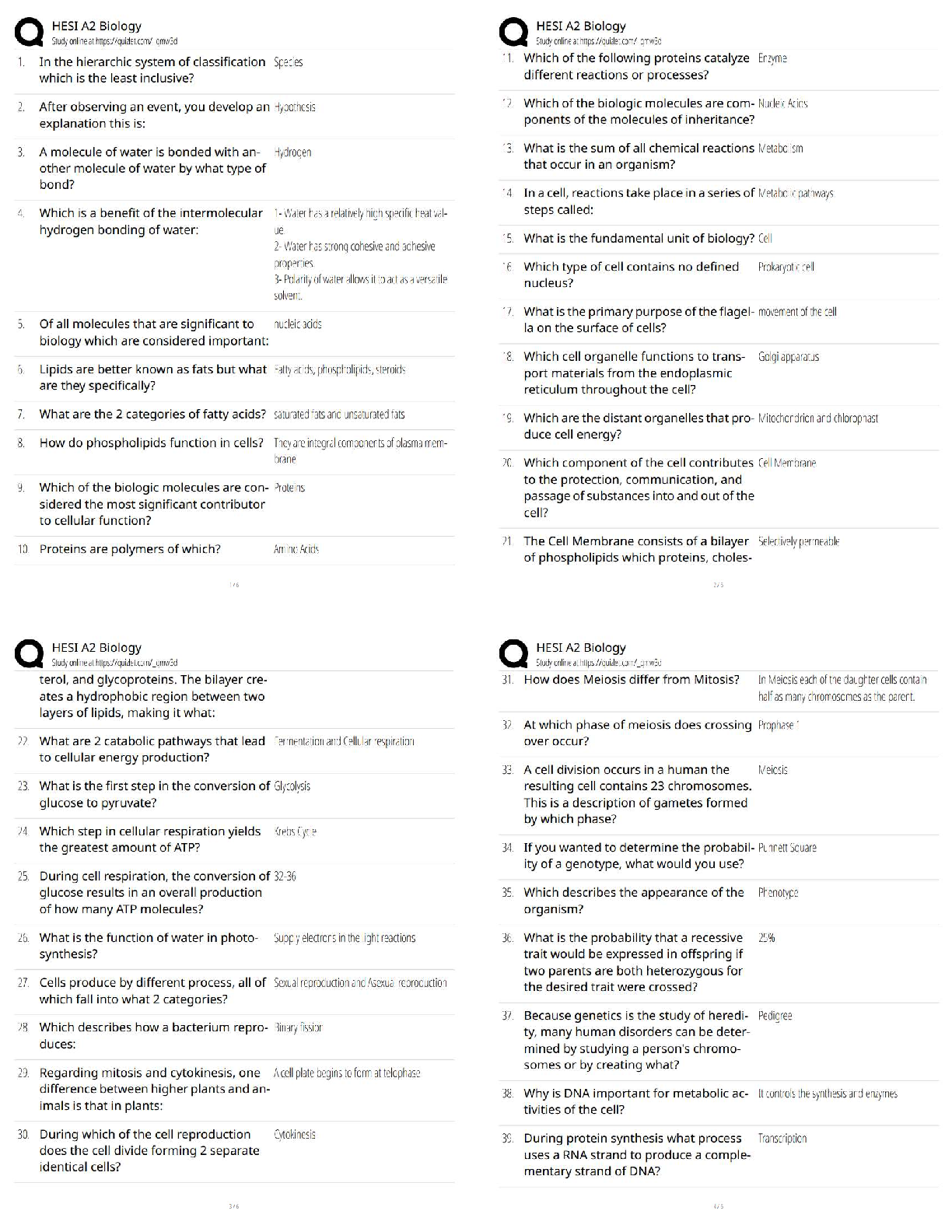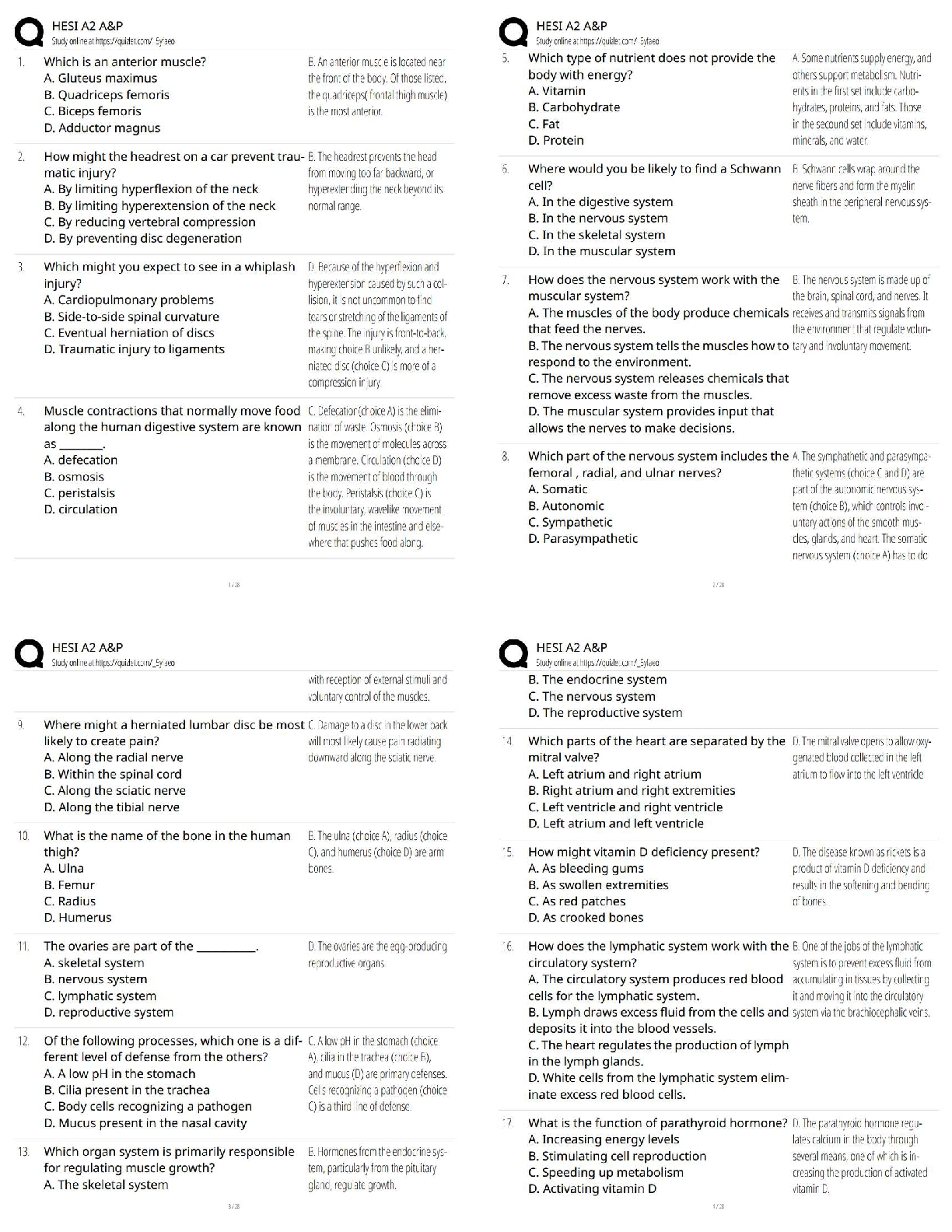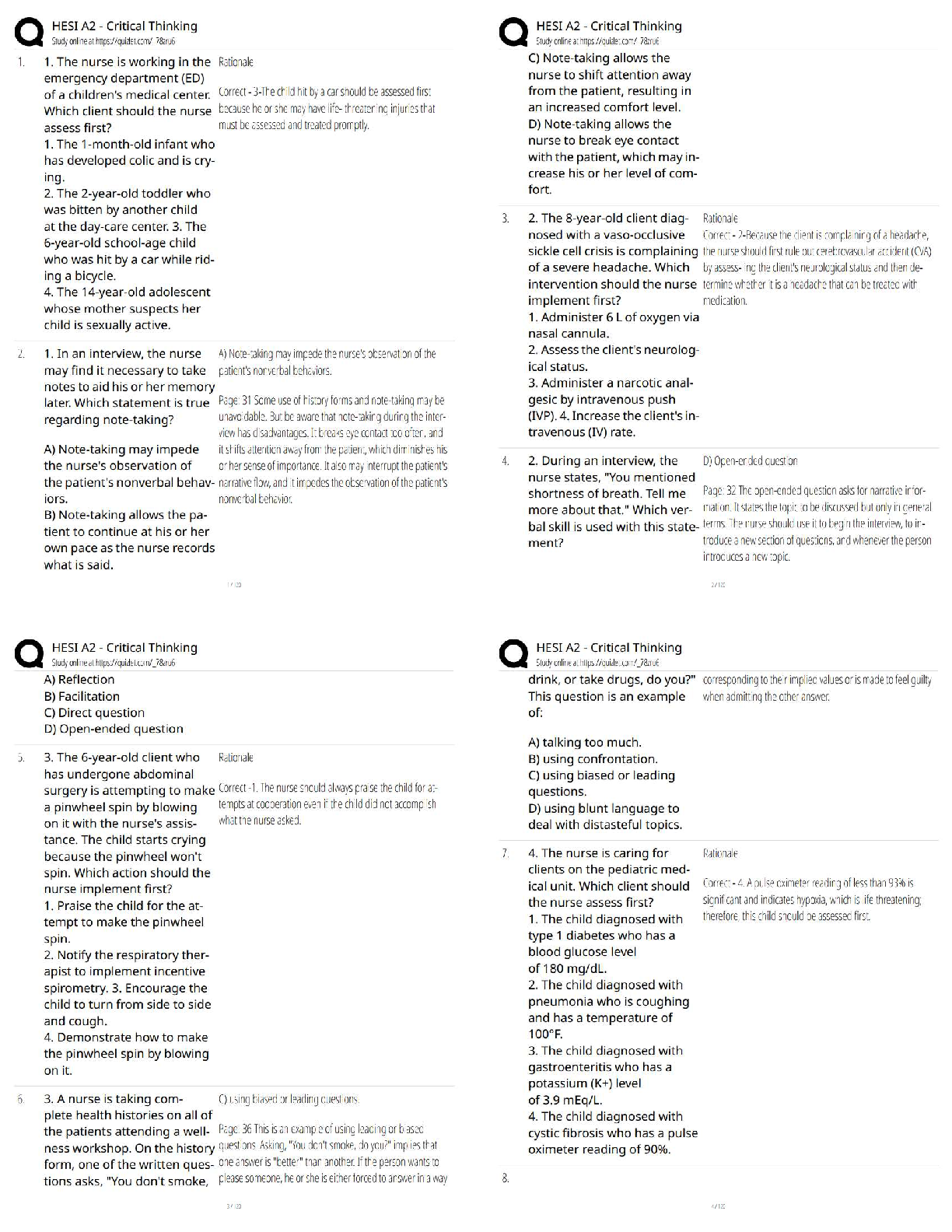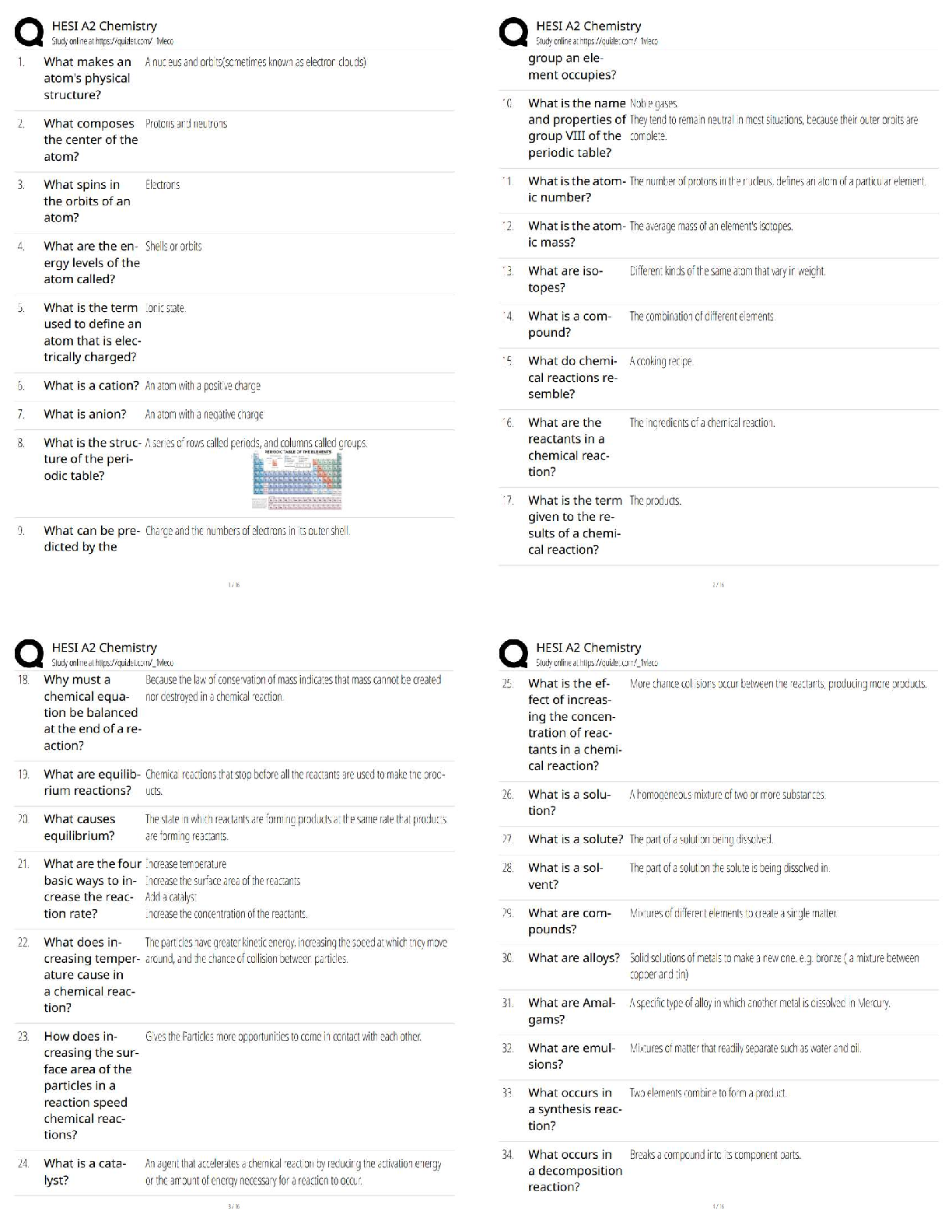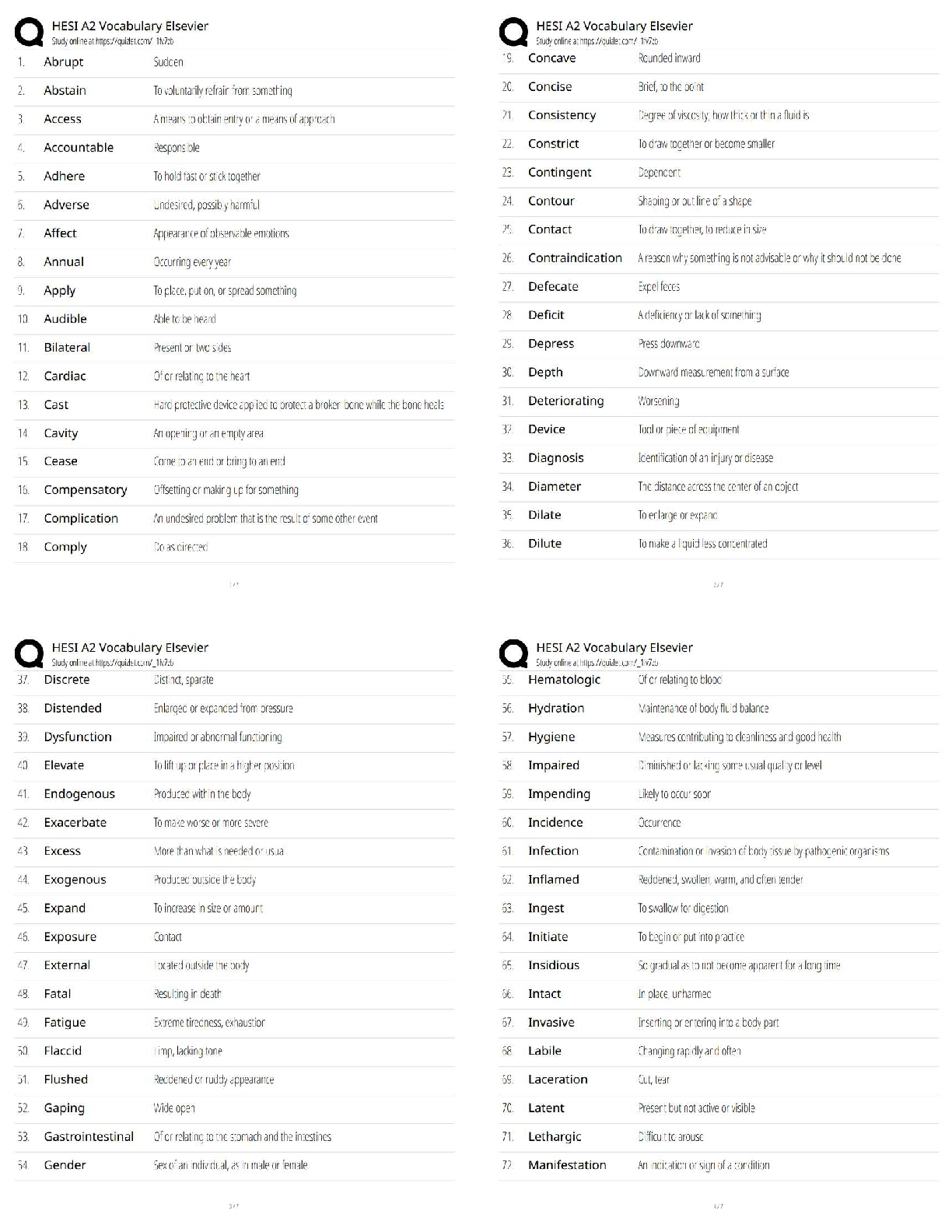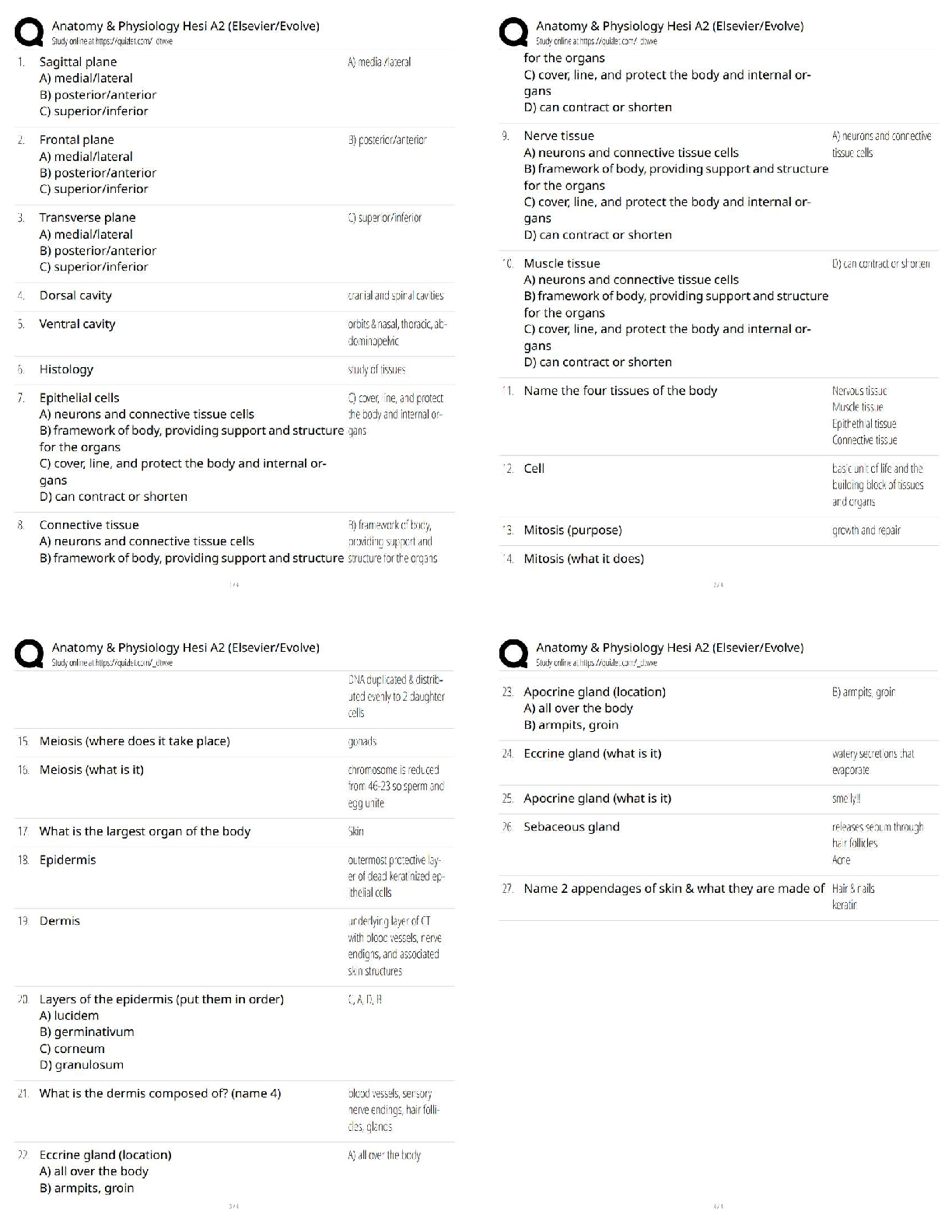Calt Exam Questions with Complete Solutions
1 / 6
1. alphabetic language: English; meaning symbols and letters reflect pronunciation of a sound; ESL students' first lang may not be alphabetic because they use
symbols;
...
Calt Exam Questions with Complete Solutions
1 / 6
1. alphabetic language: English; meaning symbols and letters reflect pronunciation of a sound; ESL students' first lang may not be alphabetic because they use
symbols; phonological knowledge must be taught, so alphabet needs to be taught
2. Alphabetic Principle: an understanding that letters and letter patterns represent the sounds of spoken words.
3. Analytic Phonics: In this approach, instruction begins with the identification of a
familiar word. The teacher then introduces a particular sound/spelling relationship
within that familiar word
4. Synthetic Phonics: In this systematic and explicit approach, students learn to
transform letters and letter combinations into sounds and then the sounds together
to form recognizable words. Teach individual parts and build to whole
5. auditory discrimination: The ability to hear differences in sounds
6. auditory span: the number of words, numbers, or sounds a student can hold in
his working memory. Can limit dictation or note taking.
7. blend: two or more sounds that are frequently grouped together- each sound
can be separated into its individual components
8. cedilla: a diacritical mark (,) placed below the letter c to indicate that it is
pronounced as an s
9. circumflex: the code marked placed over vowels to indicate an unusual pronunciation
10. compensatory approach: one does not attempt to remediate the problem but
instead recommends modifications within the learning environment which allows
the student to be successful
11. Cloze Procedure: The use of semantic and syntactic clues to aid in completing
sentences."Fill in the blank"
12. Coding: putting code marks on words- encourages kinesthetic involvement
and discourages guessing
13. combination: a pattern of letters which occurs frequently together. They form
an unexpected sound (vr's, qu, wh)
14. comorbid: two or more disorders in the same individual
15. consonant: sounds that are blocked or partially blocked by the tongue teeth
and lips
16. Decoding: using the sound/symbol system and structural analysis to unlock
unfamiliar words (synthetic)
[Show More]




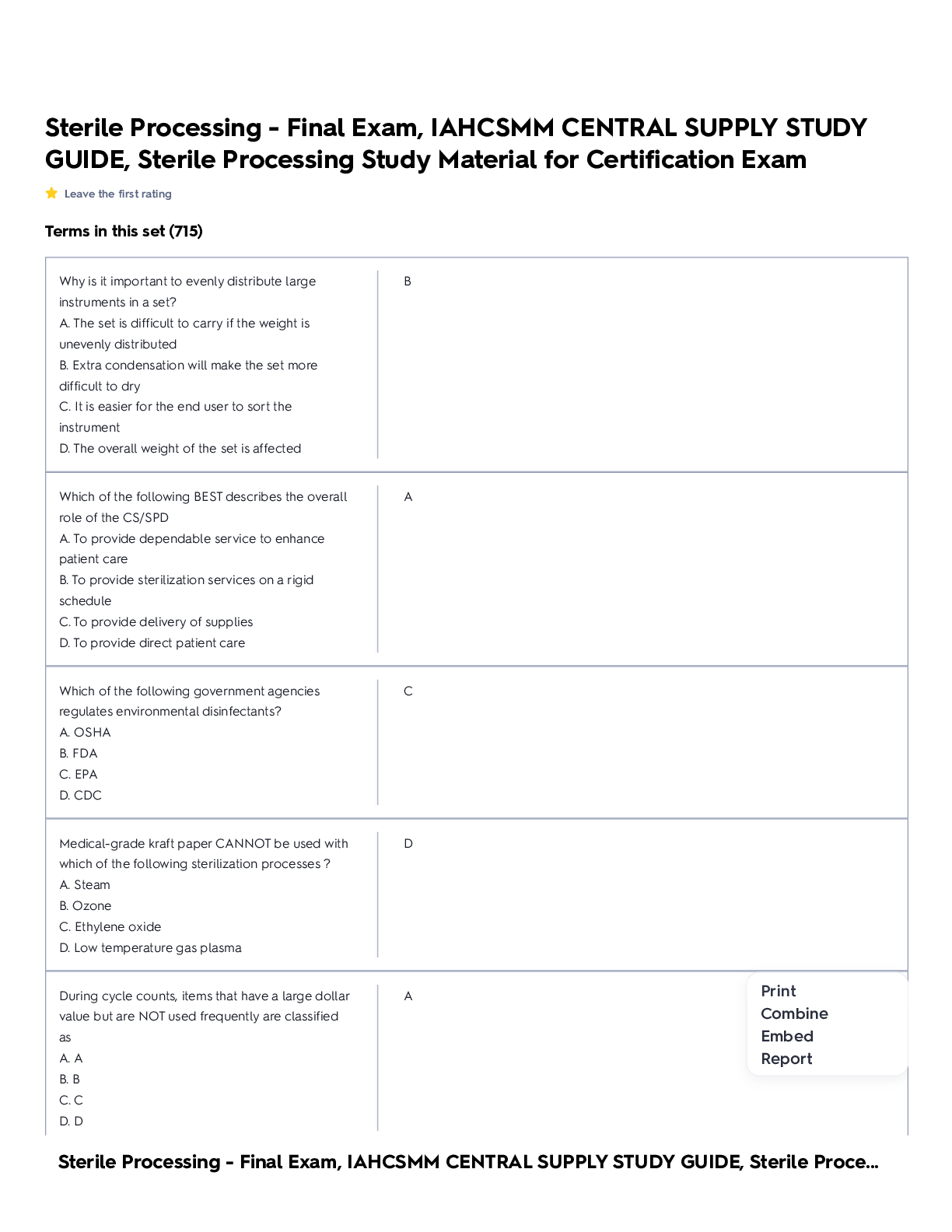

 with Complete Solution.png)
 Career Information with Complete Solution.png)


 for E-6 Career Information_watermark.png)
